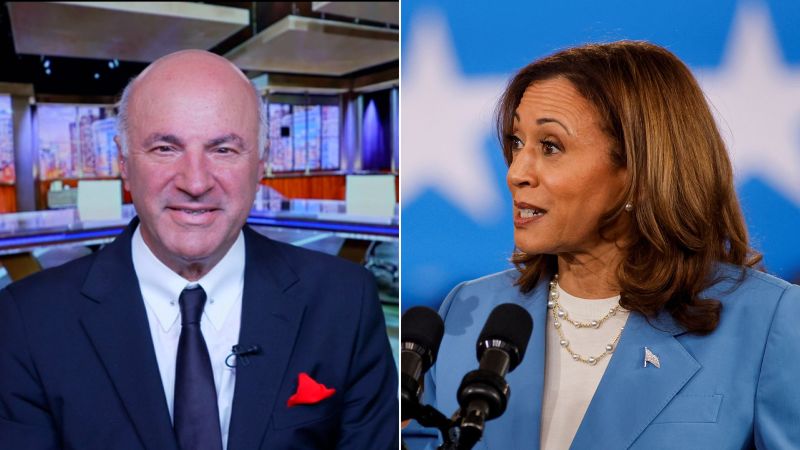In an interview on CNN, Kevin O’Leary, known for his role on “Shark Tank” and as the Chairman of O’Leary Ventures, expressed his criticism of Vice President Kamala Harris’ proposed economic policy. O’Leary described Harris’ plan as a “really bad idea,” and went on to explain his reasons for this assessment. He suggested that the proposed policy could have negative consequences for the economy and the American people as a whole.
O’Leary specifically criticized Harris’ proposal to increase taxes on the wealthiest Americans in order to fund social programs. He argued that this approach would discourage successful individuals from investing and creating jobs, ultimately hurting the economy. O’Leary is known for his views on entrepreneurship and investment, so his concerns about the impact of higher taxes on the wealthy are not surprising. He believes that encouraging entrepreneurship and innovation is crucial for economic growth, and that taxing the wealthy could hinder this process.
Furthermore, O’Leary pointed out that the wealthy already pay a significant amount in taxes, and increasing the burden on them could lead to negative consequences. He suggested that instead of focusing on taxing the rich, the government should prioritize simplifying the tax code and making it more efficient. This would help ensure that everyone pays their fair share while also promoting economic growth. O’Leary’s perspective reflects his belief in the importance of a balanced approach to taxation and economic policy.
In addition to his concerns about higher taxes, O’Leary also criticized Harris’ proposed policies on healthcare and education. He argued that these initiatives would require substantial government spending, which could lead to increased deficits and debt. O’Leary emphasized the need for fiscal responsibility and cautioned against policies that could lead to financial instability. His comments suggest that he believes Harris’ economic plan lacks the necessary balance and long-term thinking to be successful.
Overall, O’Leary’s comments on Harris’ proposed economic policy highlight his belief in the importance of entrepreneurship, investment, and fiscal responsibility. He expressed skepticism about the potential impact of higher taxes on the wealthy, as well as concerns about the cost and feasibility of the proposed social programs. While O’Leary’s views may not align with those of Harris and her supporters, his perspective as a successful investor and entrepreneur offers valuable insights into the potential implications of her economic plan. Ultimately, O’Leary’s criticisms serve as a reminder of the complex challenges facing policymakers as they seek to balance economic growth and social welfare.


